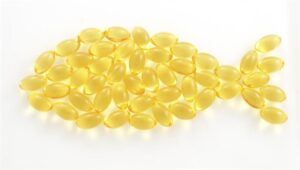The importance of omega-3 and omega-6 fatty acid supplementation in neurodevelopmental disorders.
Neurodevelopmental disorders (NDDs) are a group of conditions characterised
by a delay or disturbance in the acquisition of skills in a variety of developmental areas
including motor, social, language, and cognition.
Attention deficit hyperactivity disorder (ADHD), autism spectrum disorders (ASD) and learning
disability (LD) are among the most common neurodevelopmental disorders.
Essential fatty acid and long-chain polyunsaturated fatty acid (Lc-PUFA) deficiency is a
common feature in those with NDDs, resulting mainly from genetic differences and the western diet.
PUFA supplementation has emerged as a useful tool for improving symptoms in children
and adults with NDDs.

The efficacy of omega-3 supplementation on cognitive function and NDD symptoms can
be supported by adding omega-6 gamma-linolenic acid (GLA). GLA exerts a powerful
inflammation-modulating effect when given in association with the omega-3 EPA.
A balanced omega-3/omega-6 supplement, containing eicosapentaenoic acid (EPA),
docosahexaenoic acid (DHA) and GLA in a 9:3:1 ratio, has been assessed in a number of
preclinical and clinical studies, showing significant and consistent results in the treatment of
NDDs.
Neuroprotection
Omega-3 PUFAs can protect neurons by counteracting oxidative stress via modulating
antioxidant enzymes, reducing free radicals levels, and normalising neurotrophic factors,
which support the growth, survival, and differentiation of both developing and mature
neurons.
Role in neuroinflammation
PUFAs can modulate excess brain inflammation through several different mechanisms. DHA,
for example, is able to regulate microglia activation and function, acting on proinflammatory
membrane receptors and modulating inflammatory gene transcription. Moreover, research
shows that PUFAs can decrease the production of several pro-inflammatory cytokines such
as TNFα, IL-1β and IL-6.28
Omega-3 fatty acid supplementation can benefit ADHD by reducing hyperactivity and improving attention particularly in those with insufficient levels.
When looking for a good fish oil supplement make sure you talk to a health care professional to recommend a good quality and well suited supplement for yourself or your little one.

